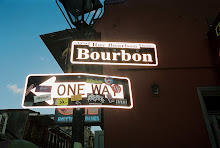The Stiltskins
Q: What do you call a person whose hair is always "fly-away," who consistently drops food on their clothing despite all good manners, who manages to look rumpled even in freshly ironed clothing, and who is comfortable and relaxed with his or herself?
Sunday, November 25, 2007
Friday, November 16, 2007
Vanilla Warning

You know the saying "All that glitters is not gold"? or "You get what you pay for"? Well, here is a warning I thought I'd pass on to all you cooks (as well as those who eat what the cooks whip up!) . . .
Ever heard about or seen those HUGE bottles of vanilla extract in Mexico? You know the ones, 1 quart for $5 . . . what a deal!
We use vanilla in baking all the time and only buy the pure extract which is pricey. While in Puerto Vallarta we were taken by the cheap bottles of vanilla and the only reason we didn't bring one (or a suitcase full, as we would have liked to!) was fear of the glass bottle breaking.
However, just read something alarming to be aware of when purchasing vanilla in Mexico:
Courmarin, the bad guy of the vanilla industry, is a flavouring similar to vanilla but derived from the Brazillian tonka bean. It is used extensively in Mexico to make synthetic vanilla, but it is a known carcinogen that can cause liver damage and should not be used. If you purchase vanilla in Mexico, steer clear of the bargain-size bottles and make sure it is labelled "courmarin-free."
(Source: Canadian Living Magazine, November 2007)
Sunday, November 11, 2007
Lest We Forget
 The poppy became the symbol of Armistace Day (now Remembrance Day) in Canada and Great Britain in the last year of WWI. Moina Michael was so inspired by the poem below that she led a campaign to have the poppy the official symbol of remembrance. "In a high moment of white resolve, I pledged to keep the faith and always to wear a red poppy of Flanders Fields as a sign of remembrance and the emblem of 'keeping the faith with all who died."
The poppy became the symbol of Armistace Day (now Remembrance Day) in Canada and Great Britain in the last year of WWI. Moina Michael was so inspired by the poem below that she led a campaign to have the poppy the official symbol of remembrance. "In a high moment of white resolve, I pledged to keep the faith and always to wear a red poppy of Flanders Fields as a sign of remembrance and the emblem of 'keeping the faith with all who died."
The poppy remains a prominent symbol in Canada and gymnasiums fill with public school children during Remembrance Day ceremonies take place before this national holiday. The poem that inspired this tradition "In Flandaers Fields" was written by a Canadian John McCrae, a surgeon attached to a field artillery. After a brutal time fighting in France, the Canadians moved to Flanders in mid-April, and were positioned around the Belgian town of Ypres.
On April 22-23, in their first major battle, they distinguished themselves by holding out against the first German gas attack of the war while others around them fled. Dr. McCrae wrote this poem after giving the funeral service for his friend.
Canadian Army
IN FLANDERS FIELDS the poppies blow
We are the Dead.
Take up our quarrel with the foe:
Labels: in flanders fields, John McCrae, poppy, remembrance day, world war I


